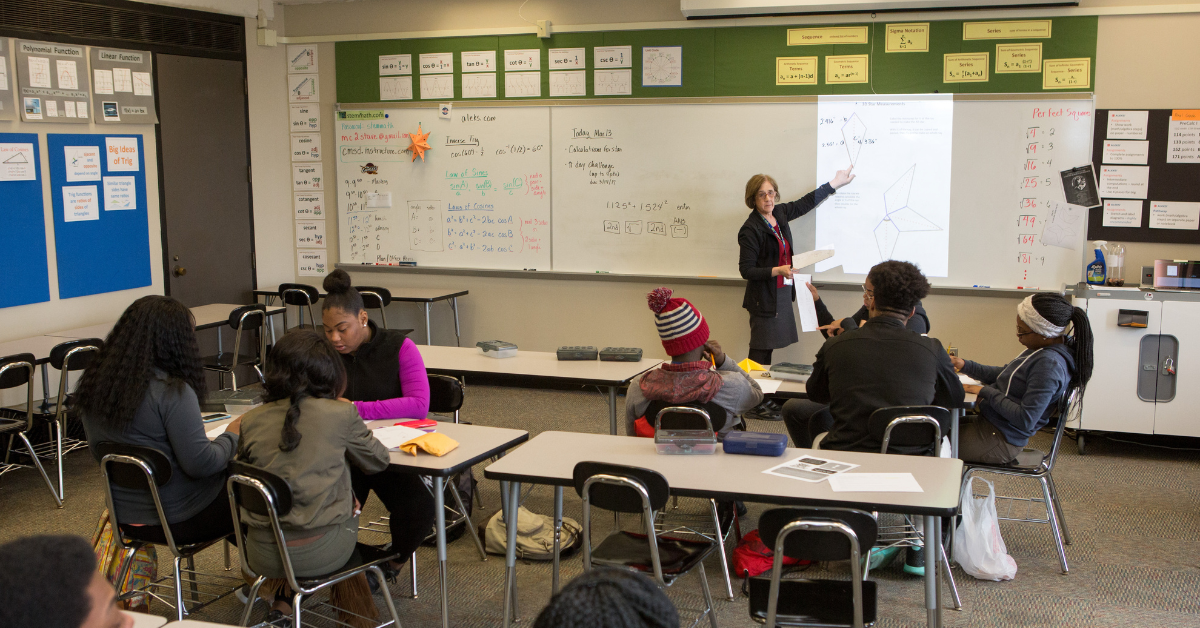
Mar 29, 2023 1:30:00 PM
At my core, I’m fascinated by how people learn, create and communicate—I imagine you are, too.
I’m instantly transported by the light in the eyes of a child when they decode their first word on their own. I love when a student rushes toward me with a wild grin on their face, waving a popsicle stick and cardboard creation they spent the morning perfecting.
I have a hard time holding back tears when they realize it’s much easier for all involved when they ask for the green Lego rather than snatch it out of their friend's hand. These moments feel so pure, when everything else drops away and I feel the triumph and possibility of being human.
There is still so much we don’t understand about teaching and learning. Empirical research into education and how children learn did not begin to take off until about 130 years ago. The flashpoint being John Dewey’s Laboratory School, which opened at the University of Chicago in 1896. He sought to propagate an education model centered on meaningful, dynamic education practices that respected the child's point of view.
Through his work, and those he worked with, he proved that such a thing was possible. This, along with the data-gathering methods pioneered by G. Stanley Hall, marked the beginning of research into education in the U.S.
But there’s a dark side to the emergence of this field and discipline, most notably the “research” performed by known racist and eugenicist, Lewis Terman.
Terman’s belief in the IQ as the ultimate measure of intelligence is a concept that continues to plague education to this day. He was not shy about the motivations behind his research: cultivating an ideal of white supremacy.
This is why it’s vital to take a moment and highlight the work of those lesser known: Black scholars who unfortunately had their major contributions to the same field suppressed and even nearly erased.
Namely, W. E. B. Dubois’ and Carter G. Woodson’s insights on sociological curricular issues and how they affect students. Dubois offered expansive and meticulous insights into Black intellectualism and culture. His legacy affects how sociological research is done today, due to his intuitive understanding and refinement of empirical methods.
Woodson, known as the Father of Black history, created curricular materials and textbooks of the highest quality based on empirical historical analysis of Black history and culture. His work was notable for many reasons, not the least of which is how many modern textbooks continue to fail in the ways Woodson succeeded.
This point is particularly timely given the recent infuriating and disgraceful actions of the College Board’s response to Florida’s ban on AP African American Studies, as well as the continued banning of books by special interest groups fueled by hate.
This is not meant as an aside, but rather as a clarion call to anyone who feels or thinks similarly to myself. The field of education is ripe for deeper understanding about what makes a human…a human. How do we learn, create and communicate?
It could be said that education research’s “original sin” is tabula rasa—Aristotle's belief that children are born as blank slates, without innate abilities or dispositions of their own.
Unfortunately, tabula rasa is the bedrock upon which all of our systemic education woes are built. The idea of the child’s mind as a “blank slate” would continue to reverberate through John Locke in his “Essay Concerning Human Understanding” (1689) as “no innate ideas,” and throughout the writings of Freud. Both thinkers remain central to many of our assumptions about how humans learn, create and communicate.
We treat the child as an object rather than as a subject and we’re all worse off for it. There’s still so much territory to discover and ideas to explore in a field largely built on the work of deeply problematic people, whose ideas affect how education works to this day. People love to say it’s all been done before, there are no new thoughts, but that’s clearly false when it comes to the field of education. It’s quite thrilling, actually.
Who are some of the other scholars that have shaped your thinking of how we learn? I’d love to know!
This essay originally appeared on substack. Photo by CDC on Unsplash.
Editor’s Note: to learn more about educational research and culturally relevant education, read these articles here and here.
Jade Ann Rivera is a curriculum and learning environment designer with expertise in strength-based pedagogy. Her work focuses on neurodivergent children, specifically twice-exceptional children. She is honored to serve as a lab director and professor at the Bridges Graduate School of Cognitive Diversity
Few issues in education spark more tension and debate than standardized testing. Are they a tool for equity or a burden on students? A necessary check on school systems or a flawed measure of...
Charter schools are public schools with a purpose. Operating independently from traditional school districts, they're tuition-free, open to all students, and publicly funded—but with more flexibility...
Despite the benefits of a diverse teaching force, prospective teachers of color fall out of our leaky preparation pipeline at every stage: preparation, hiring, induction, and retention. Here’s what...
Ed Post is the flagship website platform of brightbeam, a 501(c3) network of education activists and influencers demanding a better education and a brighter future for every child.
© 2020-2025 brightbeam. All rights reserved.
Leave a Comment